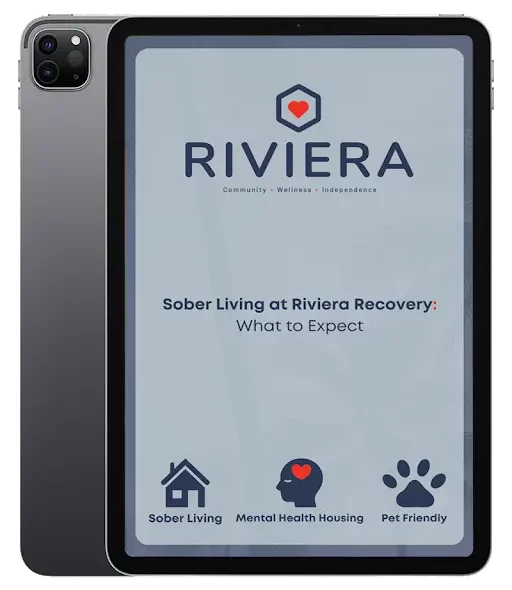Addiction to methamphetamine is serious and requires meth detox before intensive treatment can begin. Methamphetamine is a highly addictive and hazardous stimulant drug. Prolonged use of meth can lead to a wide range of adverse health issues and detoxing from meth can be risky as well. Therefore, it is highly recommended that those who wish to stop should do so with the assistance of a medical expert at a meth detox center.
This article will explain meth addiction along with the short-term and long-term effects of meth use, what to expect during meth detox, and what happens once the detox has been completed.
Methamphetamine Addiction Explained
When somebody uses methamphetamine, there is an influx of dopamine, a neurotransmitter related to pleasure and reward, into the brain. This spike of dopamine produces a strong feeling of elation, which can make the individual want to use the drug repeatedly. But, as the person persists in consuming meth, their brain gets used to the high amount of dopamine and may stop naturally producing it by itself. This can lead to the person feeling depressed or nervous when they are not taking the drug, and can make it difficult for them to experience feelings of joy or contentment without using meth.
When a person uses meth repeatedly, their brain’s dopamine receptors start to change, making it difficult for them to experience joy from typical activities. They might also start to suffer from lack of sleep, fear, and paranoia. Despite these adverse effects, the individual may continue using meth in order to achieve euphoria or to evade the disagreeable sensations related to withdrawal.

The process of dependence is also impacted by numerous other things, such as genetics, the atmosphere, and mental health. Some people may be more prone to addiction than others, and certain aspects of their surroundings, such as tension or availability of the drug, could make it more probable that they will become addicted.
Once someone is addicted to meth, they may experience an intense desire to use the drug and find it difficult to resist, even though it is having negative effects on their life. Additionally, if they try to quit, they may experience withdrawal symptoms like depression, anxiety, and tiredness, which can make it challenging for them to stop.
Short-Term Side Effects of Meth Use
It is important to be aware of these potential side effects of meth use and to seek professional help if you or someone you know is struggling with addiction. Short-term side effects of meth use include:
- Insomnia
- Decreased appetite
- Confusion
- Euphoria
- Rapid heart rate
- Increased blood pressure
- Anxiety
- Paranoia
Download Our FREE eBook
We encourage you to download our informational eBook that illustrates what you can expect within Riviera Recovery’s sober living program

Long-Term Side Effects of Methamphetamine Abuse
Long-term meth abuse can have a wide range of negative, and even dangerous, effects on the user’s health. These effects include changes to the brain’s structure and chemistry, as well as physical effects such as dehydration, malnutrition, tooth decay, and facial scarring. Additionally, long-term meth addiction can lead to significant psychological disorders including depression, anxiety, and psychosis.
Meth Detox
The process of eliminating meth from the body and managing the signs of withdrawal is known as methamphetamine detoxification or meth detox. Initially, the severity of the addiction and any concurrent physical or mental health issues are evaluated medically. During detoxification, medication may be used to help with the withdrawal symptoms and support may be provided through counseling or other means in order to help the addict get through the process and prepare for subsequent, intensive addiction treatment.
What to Expect
The initial step of a detox program is often a medical assessment to gauge the level of the individual’s substance dependence and any related physical or mental health issues. This might involve completing a full history, going through a physical examination, and having laboratory tests done. The compiled information during the intake process is then utilized to create a personalized treatment plan that caters to the person’s specific requirements.
Once the person has been stabilized, the real meth detoxification process can start. This usually entails controlling the physical and mental side effects of withdrawal through a mix of drugs, therapy, and other supportive measures. Medications that are used in meth detoxification may include antidepressants and anti-anxiety medications to help cope with emotional symptoms, and anti-inflammatory medicines to help alleviate physical distress.

During the process of withdrawing from methamphetamine, a person may have a range of physical and emotional side effects as their system is adapting to the lack of the drug. The intensity and length of these effects can differ, but they usually become most severe during the early days of detox and then slowly lessen. Some of the regular physical signs of meth detoxification consist of:
- Fatigue
- Headaches
- Nausea
- Depression
- Irritability
- Cravings
- Paranoia
Throughout the detoxification process, the medical team will keep a close eye on the individual’s vital signs and overall well-being, and any shift in their state of health will be dealt with in a timely manner. When the detoxification has been completed, the person will typically be referred to an inpatient or outpatient addiction treatment program to continue their journey toward recovery.
How Long Does Meth Detox Last?
The period it takes for someone to be rid of methamphetamine (meth) can change based on multiple elements, such as the individual’s degree of addiction, their overall wellbeing, and whether they are affected by any co-occurring physical or psychological problems. Generally, the initial physical withdrawal symptoms of meth detox can persist for a few days up to a week. Some individuals may feel lingering tiredness, difficulty sleeping, and emotional fluctuations for a few weeks or even months after ceasing use.
The Top 5 Benefits of a Meth Detox Center
Detoxing from meth in a professionally staffed detox center offers a number of advantages over self-detoxing at home. By seeking out professional help at a meth detox center, individuals have access to the highest quality care as they begin their journey toward recovery. The following are some of the many benefits of entering a professional meth detox program:
Medical Supervision
Detoxing from meth can be a very difficult experience and it is important to have medical supervision to ensure the safety of the individual going through this process. Detox centers provide a safe environment with medical staff on hand to monitor vital signs, provide any necessary medications, and address any medical complications that arise. It is extremely important to have proper medical supervision when detoxing from meth as it can be a dangerous and uncomfortable process.
Comfort
Detox centers strive to provide a safe and comfortable environment, as these are crucial in achieving a successful recovery process. Through this atmosphere of comfort and safety, the person going through detox can be free from distractions and potential triggers that could potentially lead to relapse. Such an environment allows them to focus on their healing journey with full attention and dedication.
Structure
The structure created by the center is essential in providing individuals with a safe and organized environment. It allows the person to focus on therapeutic activities and keeps them away from any potential triggers or temptations. Consequently, having a structured and routine environment is key in helping people to stay engaged and motivated during their recovery journey.

Relapse Prevention
Relapse prevention is a vital part of long-term recovery, and detox centers are well aware of this. That is why many of them offer an aftercare program and follow-up services to ensure the patient’s continued sobriety. These services help to provide necessary support, guidance, and resources that can help significantly reduce the chances of relapse.
Continued Care
Detox centers are an important first step in the recovery process and can help lay the foundations for continued care. It is important to keep in mind that detox alone cannot provide a lasting recovery solution, and many detox centers have connections with addiction treatment centers to ensure an easier transition into an inpatient or outpatient setting. Continued care is key for sustained success, and these connections between detox and addiction treatment centers can make a great deal of difference in the long run.
What Happens After Meth Detox?
After completing meth detox, it is essential for the person to continue with ongoing addiction treatment to address the root causes of their addiction. The treatment plan should be tailored to the individual’s personal needs and can include a variety of approaches such as cognitive-behavioral therapy, motivational interviewing, psychotherapy or medication-assisted treatment. It is important that the person receives treatment that is both comprehensive and effective in order to prevent relapse and achieve lasting recovery.
Common treatments include:
Inpatient Treatment
An inpatient rehab program is an integral part of addiction treatment. It provides 24-hour support and structure, helping patients establish healthy routines, such as regular nutrition and physical activity, to replace unhealthy behaviors. Additionally, by living in a supportive environment, individuals with severe addiction can access medical detoxification and therapeutic interventions that can be beneficial for their recovery. Inpatient rehab programs are an important step in the journey towards sobriety.
Outpatient Treatment
Outpatient rehab programs provide an effective way for those with a less severe addiction to receive treatment without disrupting their daily lives. This type of program offers a range of services, such as individual and group counseling, relapse prevention, and education classes. It is also beneficial for those who have a stable home environment as it allows them to maintain normal activities while receiving treatment. Ultimately, outpatient rehab can be an invaluable tool in assisting individuals in their recovery journey.
Support Groups
Support groups such as 12-step programs are an invaluable resource for those individuals seeking to recover from a substance use disorder. They provide a safe and supportive environment for individuals to share their experiences and receive support from peers who have gone through the same journey. This shared experience is often beneficial in helping individuals understand that they are not alone on the path of recovery, further motivating them to take the necessary steps towards achieving sobriety.
Aftercare
Aftercare programs are important in helping individuals to maintain the progress they made during their treatment. These programs provide follow-up counseling, therapy, and support groups to ensure that individuals have access to the resources they need to prevent relapse and sustain long-term recovery. An aftercare program can help to keep individuals motivated and on track as they strive to reach their goals.

Recover from Meth Addiction in Los Angeles, CA
At Riviera Recovery in Los Angeles, we understand the apprehension that can accompany the decision to seek treatment for addiction. Therefore, we strive to give our patients a secure and relaxed setting in which to focus on their recovery.
Our sober living program is meant to encourage and aid people as they move into a new and promising life. We have gender-specific housing with the aim of allowing all individuals to feel safe and supported. Additionally, we are dedicated to offering a home-like atmosphere, so we allow pets in our sober living in Los Angeles.
Reach out to the experts at Riviera Recovery and let us assist you as you move forward with confidence and optimism. Contact us today.


